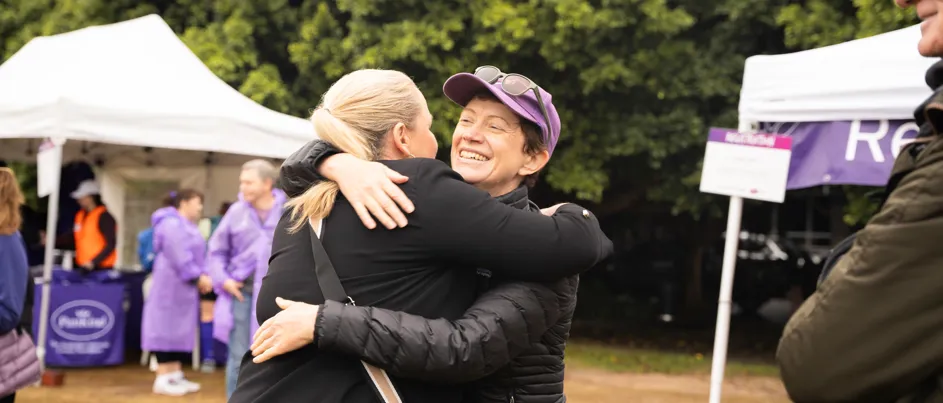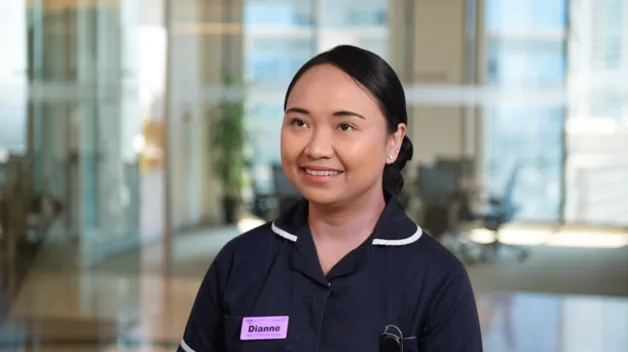Someone I know has pancreatic cancer

When someone you care about is diagnosed with pancreatic cancer, it can be hard to know what to say, what to do, or how to help. Whether you're a close carer, a sibling living far away, a friend who wants to support, or a neighbour who simply wants to show they care—your presence matters.
You might be feeling a mix of emotions: fear, sadness, confusion, even guilt. These feelings are entirely valid, and in many cases, you’re not alone in carrying them. Supporting someone through cancer affects us all differently, and every connection counts.
We understand that supporting a loved one can be deeply rewarding—but also emotionally and physically challenging. It’s easy to put your own needs aside. But taking care of yourself is not only important—it’s essential. When you feel supported, you’re in a stronger position to be there for the person you care about.
This page is here to help you navigate that role—whatever it looks like for you. You’ll find ideas for showing support, tips for communication, and ways to look after your own wellbeing. Because no one should feel like they have to do this alone.
Caring for someone with pancreatic cancer
Your role will depend very much on the wishes of the person you are caring for and how advanced their cancer is. Caring for someone in the advanced stages of cancer is quite different to caring for someone earlier on in their illness.
As a carer, you may my need to:
- attend medical appointments with the person you are caring for
- organise services and support for their ongoing care
- make decisions on their behalf
- keep up communication with other family and friends.
I was also the main communication point to all of mum’s family and friends – this was a difficult task, and certainly something that in hindsight it would be great to have a resource around how you can be that person, who relays the good and the bad, and then ultimately that mum passed away.
- Kat
- Make time for yourself to get out of the house and share your feelings with someone you trust.
- Be active each day, if possible, even if only for a short walk outside.
- Eat a healthy, well-balanced diet and drink plenty of water.
- Rest when you can.
- Accept help from others where possible, and don’t feel guilty if you can’t do everything.
- Listen, but don’t feel you always have to fix things.
- See your GP if you are feeling anxious, sad or low in mood all the time or have any other health concerns.
- Don’t put off seeing a doctor if you have symptoms that won’t go away.
- Accept your role as carer is difficult at times and there will be days you won’t feel as positive or able to support the person you are caring for as well as usual. You may even feel resentful at times. It is very normal to have these feelings and doesn’t mean you don’t love or want to care for the person.
- Nominate a close friend or family member to be the person who communicates to others about the person with cancer. Using group emails, texts or a daily blog can be useful tools to update everyone on the person’s health, treatment and support needs.
Carer support
The role of the carer can be exhausting and overwhelming. Cancer support groups are usually open to carers as well as people with cancer. A support group often provides a place to feel safe to talk about your feelings with others going through similar experiences. There are also a range of other support services that can help take some of the pressure off carers.
Other useful services for carers
You may be eligible for a Carer Payment or Carer Allowance, which are funded through the government. Both these payments can provide carers with income support if you are not able to work or you are working but still caring for someone.
Carers Australia works with carers’ associations throughout Australia to
help improve the lives of carers.
Carer Advisory and Counselling Service provides carers with referral services and practical written information to support them when caring for those close to them. Call them
Cancer Council has some information about Caring for someone with cancer. They also have support groups for carers.
Carer Gateway offers a wide range of help from counselling, peer support to respite care.
Young Carers Network provide information and direct young carers to appropriate pathways for support.

Contact Dianne, Support Navigator
on 1800 003 800 for information and find out about the services and support that may be available for you and your family.
Always consult your doctor or health professional about any health-related matters. Pankind does not provide medical or personal advice and is intended for general informational purposes only. Read our full Terms of Use.
Thank you to the clinicians, researchers, patients, and carers who have helped us create and review our support resources, we could not have done it without you.
